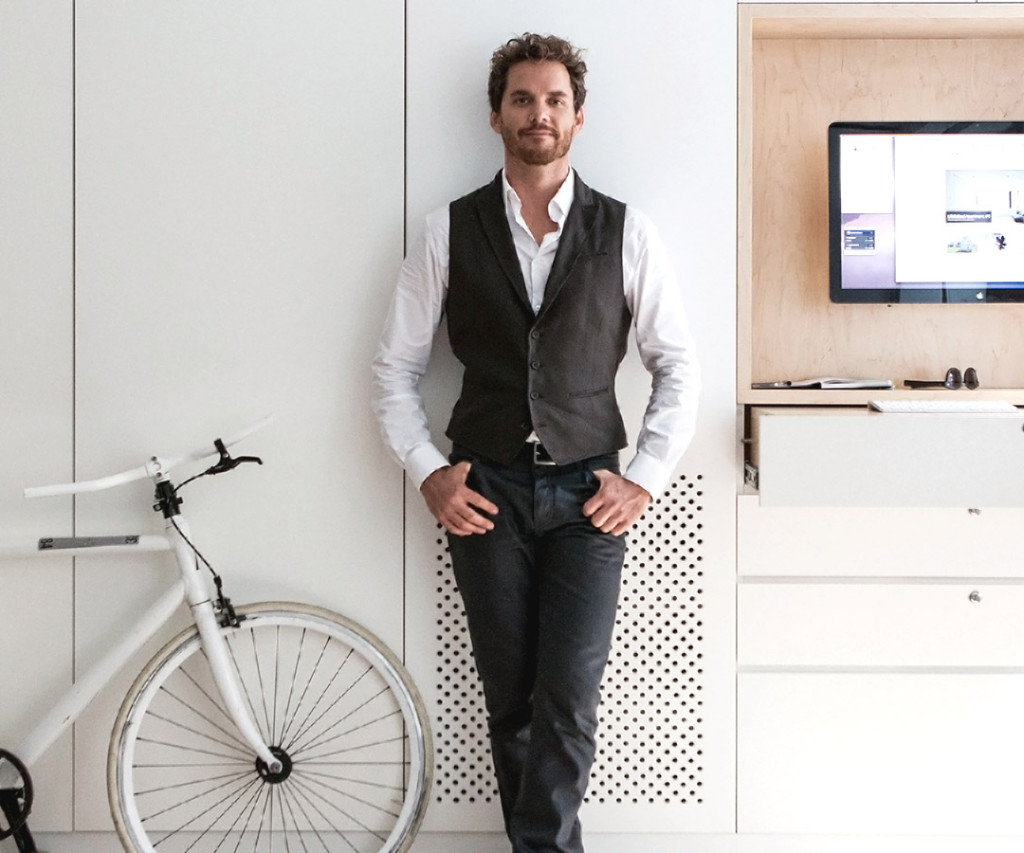I met Graham back in the nineties when he ran a web design firm in Seattle. He’s always been on the emerging edge of culture and technology and is one of those people that has an integral mind whether or not they ever use the vocabulary or reference the maps. He has a developmental view and doesn’t see modernity as the enemy, necessarily, but as the foundation upon which a thriving postmodern culture can be built.
He founded the popular Treehugger.com and is now focusing his attention on LifeEdited, which designed and built this amazing apartment in Brooklyn — just 420 square feet in size — that is an example of how we can use smart design to cut down on energy, space and resources and still create more health and happiness in our lives.
Graham is a pragmatist. His TED talk Why I’m a Weekday Vegetarian, demonstrates an integral way of leading the culture forward through a change that needs to happen. Everyone on the planet can’t eat meat three times a day, but “people don’t want to have their last hamburger.”
He advocates important incremental changes using education and the power of good design.
Graham had just arrived to his rustic cabin in Maui when Jeff reached him last winter to talk about the view from the front lines.
“America has super sized itself over the last sixty years,” he says. “We have about three times the space per person of any other Western country, and it gives us giant environmental footprints. We’re routinely living beyond our means and racking up tons of debt.
“We have a twenty-two billion dollar personal storage industry just to keep all the stuff we collect. It would all make some sense if we were happier, but we’re not.” There is a name for this uniquely modern affliction: affluenza, and Graham knows it well.
When he wrote an op-ed in the NYTimes called Living With Less, A Lot Less, critics pointed out that downsizing advice from a millionaire was hardly compelling when much of the world was still trying to scrape up enough calories to feed their families. But from an integral perspective, where we see all the altitudes of development online in the world at any given time, of course we’re privileged to be solving the problems of modernity, that’s what you do in postmodernity.
Graham points out that in the modern age we have become so efficient at making things that hoarding doesn’t make sense anymore, though it may have at one time.
“The modern mindset is a growth mindset,” Jeff reminds us, “whereas the orienting economic principle of postmodernity is sustainability.”
LifeEdited is helping with that shift by building housing for singles and families that are only two-hundred to one thousand square feet, respectively, and making these units function like much larger spaces.
Communal resources will include spare bedrooms that are bookable online (because you don’t always need that guest room, do you?), a “product library” for things that you may need occasionally but don’t make sense to own, communal space like professional kitchens, roof decks, fitness areas and a great room for parties and gatherings. Who needs to heat and cool a giant room in their home that gets used a few times a year?
“Most design is for things that happen very rarely,” Graham explains, “like a four wheel drive truck, for instance. We’re redesigning the experience of living for what it’s like ninety percent of the time. Then you can share the things that everyone only needs once in a while.”
LifeEdited are creating examples of smart communities for the future, focused in dense areas. Half of us live in cities now and that number is going up. The future is in cities, and that’s where the big changes need to happen.
In this lifestyle, where your home becomes your office and the city becomes your living room, it’s an antidote to the separation and alienation of modernity in which the pendulum has swung far in favor of autonomy. Graham wonders if underneath our modern suburban lifestyles is a fear of intimacy.
The modern critique: how does the economy work when we are consuming so much less? “We’re smart enough to figure that out in the time it’s going to take for these changes to take effect,” Graham says.
Podcast: Download
Subscribe: Google Podcasts | RSS







About 3 years ago, in the midst of emotional turmoil but tremendous amounts of therapy, practice, and growth, I felt a urge to downside I can only compare with the urge to push during labor. I left a 2000 sq ft home in the country for a one bedroom apartment in the suburbs. I am now in phase 2 – next week moving to a 1 room efficiency in the city. The freedom, happiness, and joy this has given me is beyond my ability to express. The next phase will be after I retire in 4 years. Giving up that apartment and urban / stealth camping in a contractor’s mini-van for as long as it seems right. I will return eventually to a single room. For me there is a huge relationship between living light and living in the Light.